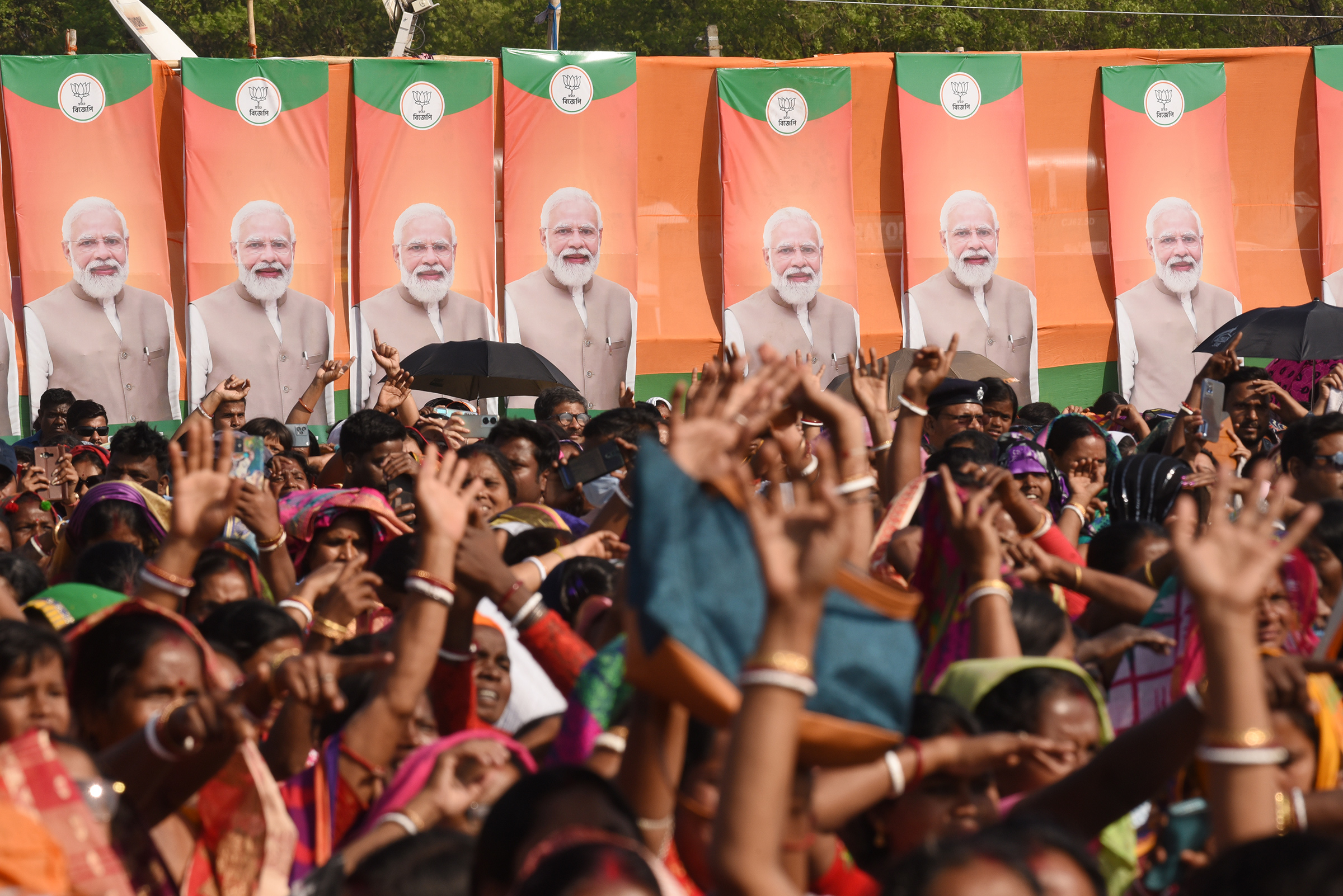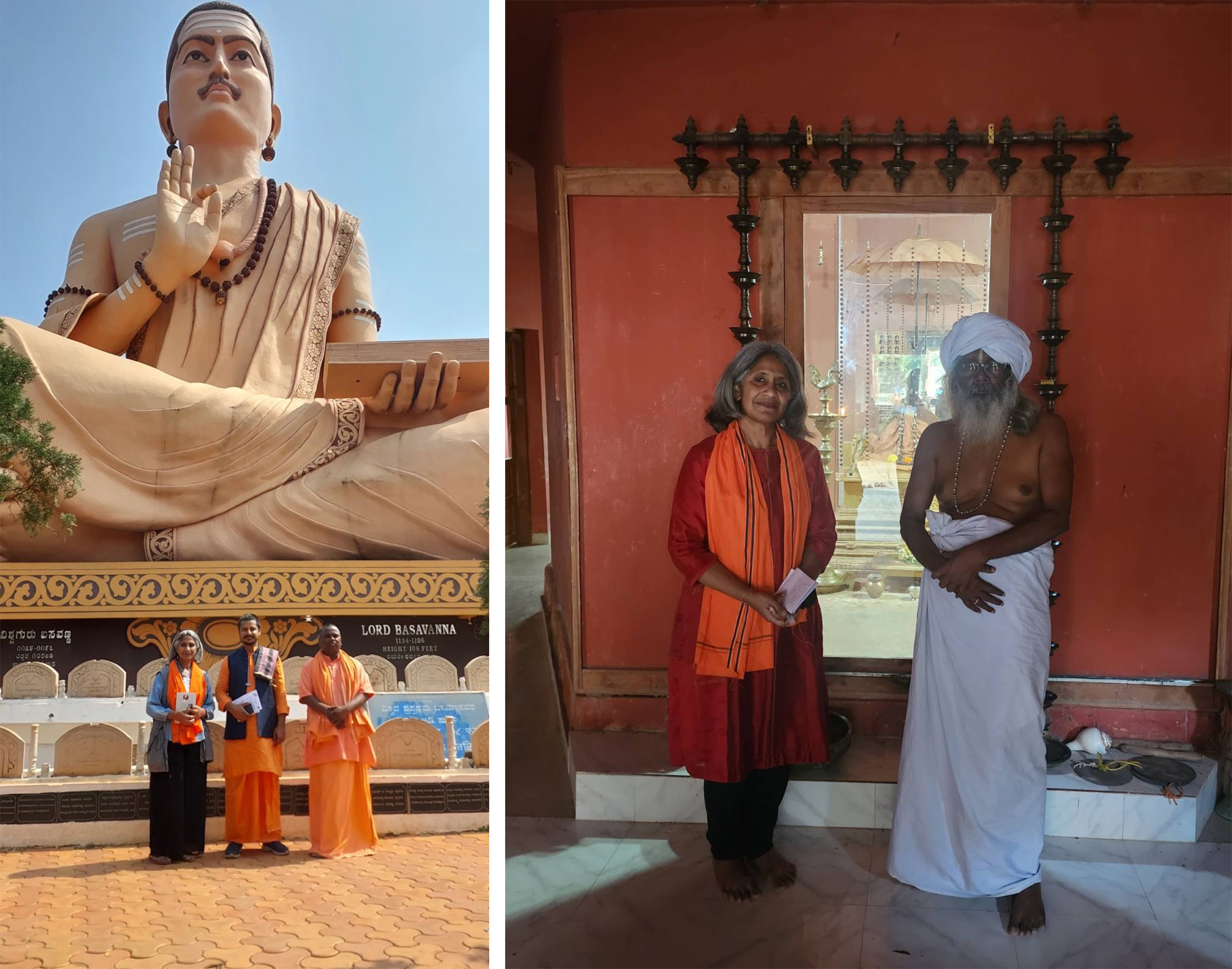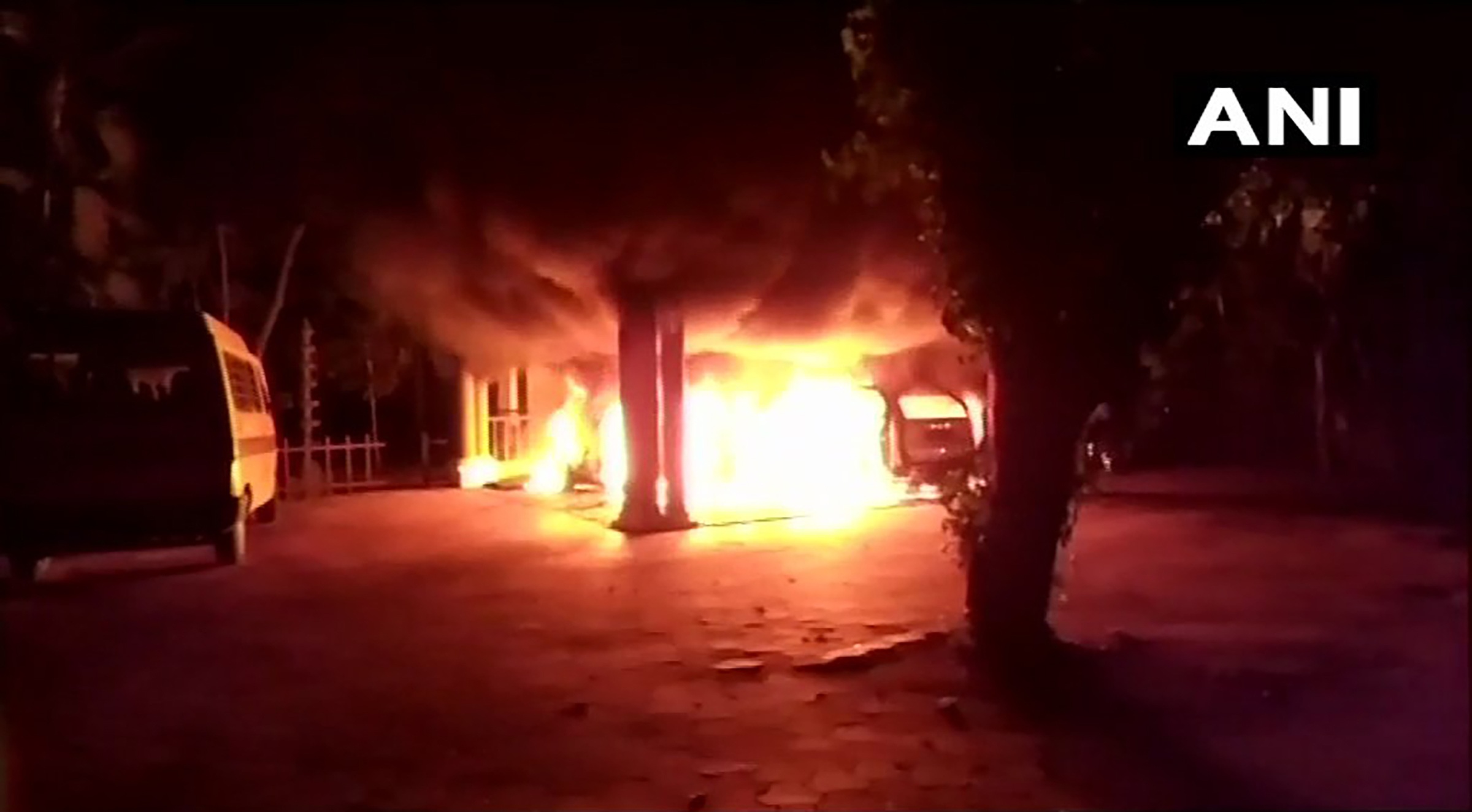
As India hurtles toward the world’s largest elections next month, I mourn for the democracy of my homeland that once was. The press is increasingly muzzled, dissent is met with incarceration, and a palpable climate of fear pervades society. My country is inching closer to becoming a Hindu supremacist state, as Muslims are getting more excluded by the day.
India’s majority Hindu community seems largely oblivious or in denial of the brewing catastrophe. Despite their silence, a significant number of Indians, both within the country and among the diaspora, are actively resisting. I have been resisting in my own way, by creating a platform for Hindus—secular, cultural, or religious—who oppose both the caste system and the nationalist Hindutva ideology.
I had previously been inspired by my dear friend and mentor, the late Swami Agnivesh, a radical monk who had devoted his life to ending bonded labor. But my colleagues and I at Hindus for Human Rights were keen to meet a new crop of brave religious leaders who reject hate. In 2023, we journeyed to India for a prema yatra, or “pilgrimage of love,” and met 15 Hindu leaders firmly opposed to Hindutva.

In our latest trip to India, in February 2024, we were joined by Swami Raghavendra, a leader of the organization Satya Dharam Samvad (SDS). As a monk with strong academic credentials, he represents a new generation of spiritual leaders who challenge Hindutva. In 2021, he organized the inaugural SDS gathering in Haridwar, in the BJP’s stronghold of northern India, as a counter to a hate assembly that explicitly called for a genocide of Muslims. At the SDS gathering that year, faith leaders took a “do or die” oath to protect secular India and the Hindu faith from Hindutva.
During the 2024 trip, Raghavendra and I were hosted by Swami Korneshwar, a leader in the Lingayat community, in Karnataka. The Lingayat movement was founded in the 12th century by the philosopher Basavanna, and is known for its staunch anti-caste stance and egalitarian ethos. But the community is at a crossroads, with some aligning with Hindutva while others strive to maintain their unique identity separate from mainstream Hinduism. Several prominent members of the Lingayat community have been assassinated by Hindutva proponents, most notably the journalist Gauri Lankesh. Others remain vocal, despite incessant death threats. During the visit, I saw how many Lingayats were willing to risk their lives to vocally oppose Hindutva.
In Kerala, we met with Swami Sandeepananda Giri, another vocal critic of Hindutva. We learned of the risks he’s faced because of his opposition to Hindutva, including a violent attack on his ashram by affiliates of the Hindu nationalist RSS paramilitary group. We were heartened by the growing resistance in Kerala, a state long known for its political diversity and progressive politics.

Our final stop was the Ayyavazhi ashram in Kanyakumari, at India’s southern tip, where we met Bala Prajapati. He represents the Ayyavazhi faith, a 19th century offshoot of Hinduism emphasizing egalitarianism, anti-casteism, and social reform. Despite the risk of violence—the ashram has a 24 hour police guard—Prajapati maintains a firm stance against Hindutva.
Overall, the journey illuminated the stark contrast between the oppressive, exclusionary nature of Hindutva, which is a much newer creation, just over 100 years old, and the inclusive, liberatory aspects of the many diverse and ancient Hindu traditions. The leaders who draw on the latter tradition can claim many progenitors, including anti-caste revolutionaries in Indian history like Basavanna, Akka Mahadevi, Vaikunda Swami, and Kabir Das.
But the challenge of combatting Hindutva is a steep one. The prevalence of nationalist symbols in unexpected places, like saffron flags on fishing boats along the beaches of Goa, one of India’s most diverse states, was a jarring reminder of this during our trip. The elections next month in India will also almost certainly see Prime Minister Narendra Modi of the Hindu nationalist Bharatiya Janata Party win a third five-year term.
Still, I remain an optimist. The brave Hindu leaders I have met, guardians of inclusive traditions that have survived millennia, are quick to admit that India is going through a dark period. But, they say, it will return to the path of secular democracy and unity. I hope that comes sooner than later.
More Must-Reads from TIME
- Caitlin Clark Is TIME's 2024 Athlete of the Year
- Where Trump 2.0 Will Differ From 1.0
- Is Intermittent Fasting Good or Bad for You?
- The 100 Must-Read Books of 2024
- Column: If Optimism Feels Ridiculous Now, Try Hope
- The Future of Climate Action Is Trade Policy
- FX’s Say Nothing Is the Must-Watch Political Thriller of 2024
- Merle Bombardieri Is Helping People Make the Baby Decision
Contact us at letters@time.com